Editor's note: A reporter from the US CTO Magazine interviewed Mr. Nguyen Anh Tuan - Chairman of the Boston Global Forum on the topic of shaping the framework for AI (artificial intelligence). The interview explains how ethical AI can redefine leadership, governance and the global digital economy while emphasizing the importance of creating a human-centered AI world. Vietnam Weekly respectfully introduces this interview. The question for leaders today is no longer what AI can do, but how it should be guided. In a world driven by algorithms, the call for ethical frameworks, transparent digital systems, and leadership grounded in human values has never been more urgent. At that pivotal intersection of innovation and responsibility, Nguyen Anh Tuan, Co-Founder (Co-Chair and CEO of Boston Global Forum), creator of the AI World Society (AIWS) and the AIWS Digital Asset Standards Initiative (AIWS-DASI), offers a transformative perspective. Beyond strategy, his ideas inspire today's leaders to think beyond efficiency and disruption—to build technology that uplifts society, preserves truth, and upholds human values in an increasingly algorithm-driven world. As the world accelerates into an AI-shaped future, Nguyen Anh Tuan's vision is that innovation without ethics can erode the very humanity it seeks to enhance. His message: technology must evolve hand in hand with common sense. Technology alone will not determine the future – humans will. While we create the fastest and most innovative AI systems, what truly defines progress is how we use them, guided by ethics, compassion and shared responsibility. It’s a reminder that human values—not technological prowess—are the true drivers of a meaningful digital future. The future of technology depends not on how powerful AI becomes, but on how wisely and compassionately we choose to guide it. |
Leadership Journey
You have worked with world leaders, governors, and professors at institutions like Harvard. What have those collaborations taught you about the kind of leadership the AI age requires?
Mr. Nguyen Anh Tuan: Leadership in the age of AI requires more than power or popularity - it requires vision, compassion, innovation, and deep moral wisdom.
Through my work with global leaders, respected governors, and renowned professors—especially at institutions like Harvard—I have come to realize that the leaders who will have the greatest impact in the new era are those who:
Think ahead - true pioneers can anticipate both the promise and the perils of AI.
Act with compassion and responsibility - always base decisions on respect for human dignity and well-being.
Purposeful innovation - using technology not just for efficiency or power, but to serve humanity in optimal, ethical, and effective ways.
Move fast and smart - The AI era moves fast, leaders must respond with flexibility and wisdom, balancing speed and vision.
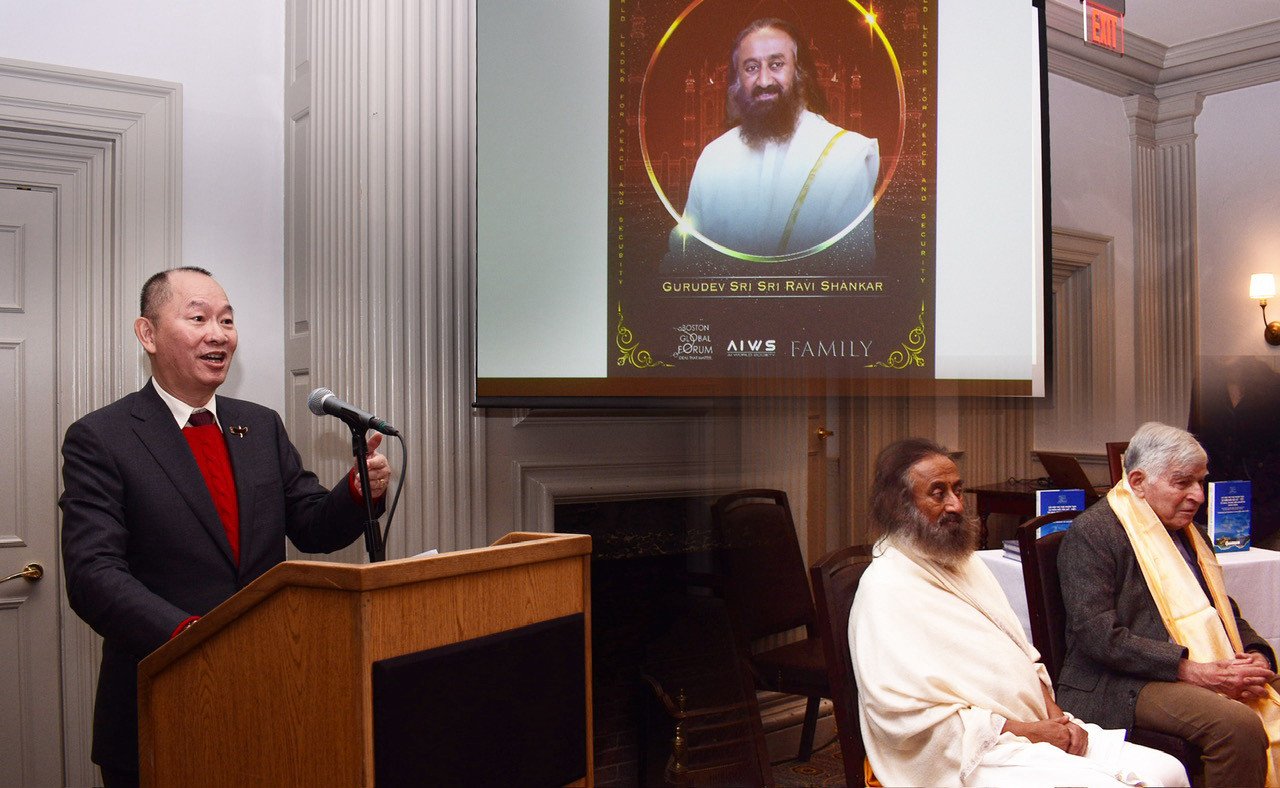
Mr. Nguyen Anh Tuan delivered a speech honoring spiritual leader Gurudev Sri Sri Ravi Shankar with the World Leader for Peace and Security Award, November 3, 2025 at Harvard University
The bottom line is, leadership in this era must rise above populism, driven not by short-term applause, but by long-term responsibility.
Authentic leaders must think with, for, and by the people. Equally important is interfaith understanding and respect. The future must be inclusive, drawing from the spiritual and cultural values of many traditions. Ethical AI cannot flourish without a foundation of empathy, mutual respect, and a common moral compass.
These lessons have profoundly influenced my work in building the AI World Society (AIWS) and shaping a form of enlightened, human-centered leadership for our time.
AIWS-DASI Initiative
What inspired you to create the AIWS Digital Asset Standards Initiative (AIWS-DASI)? Was there a defining moment when you realized the urgency of this framework?
The inspiration came from a clear and disturbing realization: the digital asset ecosystem was becoming chaotic, untrustworthy, and vulnerable to abuse. In late December 2024, I witnessed a wave of unethical behavior—including lies, fraud, manipulation, and cybercrime—on digital asset platforms. People lost trust. There was no shared set of values, no transparency, and no clear ethical framework to guide the use or governance of digital assets.
That was the defining moment for me.
I understand that if we want digital assets to truly empower people and support a new economy – not exploit them – we must build a foundation of principles. A framework grounded in ethics, accountability, transparency and respect for human dignity. That is why I founded AIWS-DASI, under the AIWS vision.
AIWS-DASI is not just a technical standard, but also an ethical and social contract for how digital assets are created, valued, and used – with AI as a trusted enabler, not a manipulator. It recognizes that digital assets must contribute to a new trust economy, uplift society, reflect cultural and spiritual values, and align with the principles of a human-centered AI age.
By setting these standards, we help shape a future where digital transformation is both innovative and ethical, where truth and integrity define the digital economy – not speculation or lies.
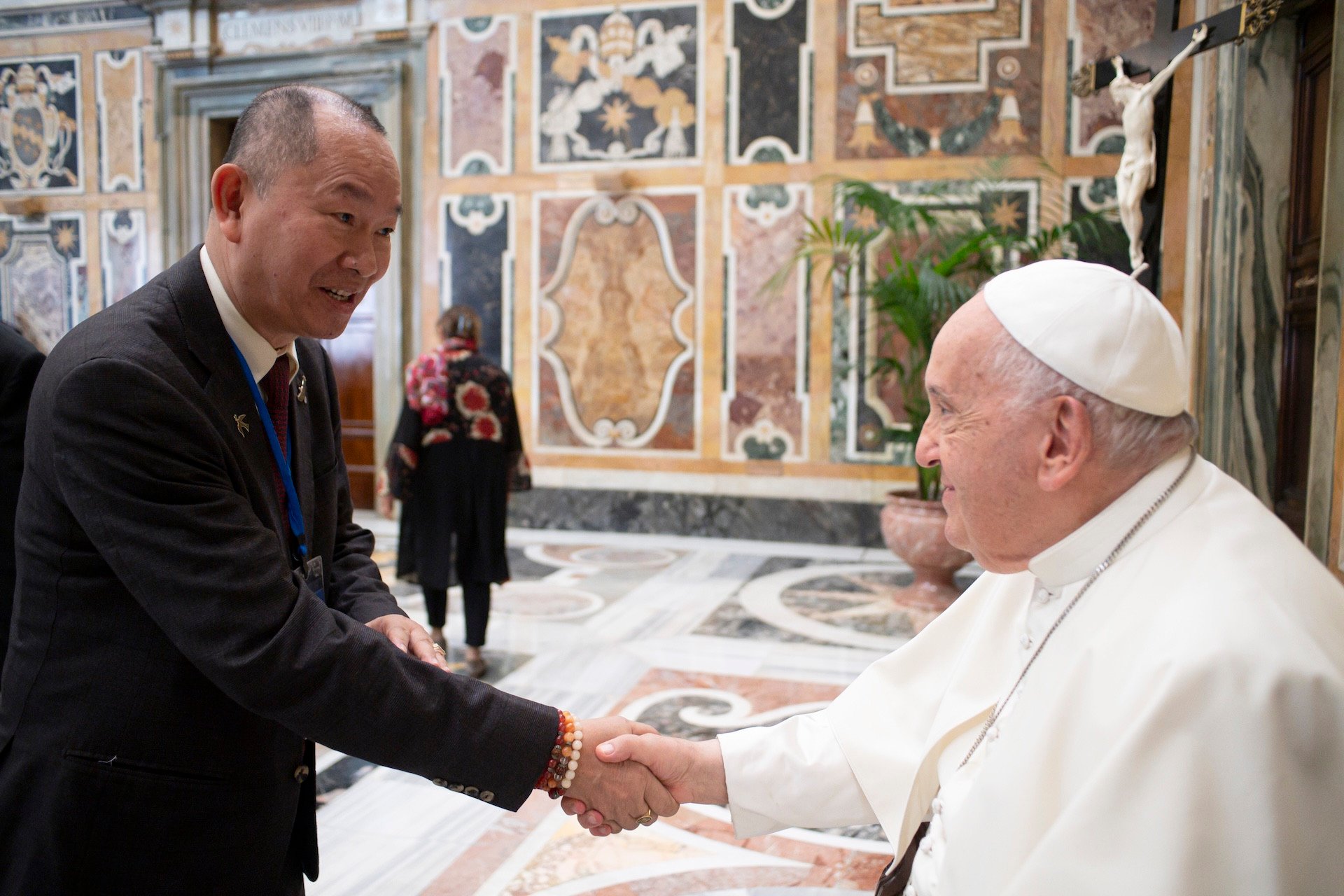
Mr. Nguyen Anh Tuan and Pope Francis at the Vatican in June 2024
AIWS-DASI introduces the world's first ethical certification system for digital assets. How will this certification be implemented in practice, and who can apply? Could you explain the core purpose?
AIWS-DASI introduces a pioneering ethical certification system, designed to maintain integrity, transparency, and trust in the rapidly growing digital asset space. At its core, certification ensures that digital assets—whether tokens, digital art, cryptocurrencies, or AI-generated products—comply with a clear set of ethical, technical, and legal standards.
In practice, the certification process is administered by the AIWS-DASI Council and reviewed by the AIWS Asset Board, a panel of global experts in AI, finance, cybersecurity, law, and ethics. Applicants – from innovators, startups, platforms, and organizations – submit their digital assets for evaluation based on criteria such as provenance transparency, ethical use of AI, privacy protection, traceability, environmental impact, and social value. Qualified assets are awarded the AIWS Ethical Label, which helps identify them as trustworthy and socially responsible.
The primary objective is to combat fraud, deception and unethical practices in the digital space, especially as digital assets increasingly become the infrastructure of the economy and society. By establishing a standard of conduct, AIWS-DASI aims to build a safe and human-centered digital economy where innovation serves the public interest.
How is AIWS different from other global AI ethics initiatives, and what unique impact do you hope to make?
AIWS is different in both vision and structure. While many global efforts focus on frameworks or principles, AIWS builds a viable and actionable social model for the AI era, based on ethics, human dignity, and global cooperation.
AIWS integrates governance, digital economy, education , culture and spiritual values into a unified ecosystem. It is not just about AI safety or governance, but about shaping a future where AI becomes a companion of civilization.
We're not just asking what AI shouldn't do, but also exploring what AI can do for good — supporting democracy, creativity, peace, and shared prosperity.
Our unique impact is creating living institutions like AIWS Government 24/7, AIWS Film Park, AIWS Music for Humanity, and AIWS Digital Assets—where ethical AI is practiced and permeated. Through collaborations with leaders, schools like Harvard and MIT, and policymakers, AIWS seeks to pioneer a new era of enlightenment—where AI strengthens the ethical foundation rather than erodes it.
Governance, technology and ethics
What safeguards are in place to ensure that the AIWS-DASI certification process itself remains transparent and accountable?
AIWS-DASI is designed with a multi-layered governance architecture to ensure integrity, transparency and reliability at every stage:
First, independent oversight by the AIWS Asset Board. The independent, globally representative board of ethics, legal, financial, and technology leaders oversees the entire certification framework; reviews applications, monitors compliance, and has the power to revoke certification in the event of violations.
Second, the evaluation criteria are transparent. All criteria are public: the ethical, technical, and governance standards that digital assets must meet. Candidates undergo a rigorous evaluation process based on published standards, preventing bias or arbitrary decisions.
Third, audit trail and public registry. AIWS-DASI maintains an auditable, tamper-proof registry of certified assets and certification decisions. Each project is listed on a public ledger, allowing community oversight and limiting abuse.
Fourth, the whistleblowing and appeal mechanism. Any individual or organization can raise concerns or report violations through the whistleblower protection mechanism. Candidates have the right to appeal, which will be reviewed by an independent panel to ensure fairness.
Fifth, certified entities must be periodically assessed. They must report on updates – ensuring compliance with evolving ethical, security, and transparency standards.
Sixth, the AIWS Code of Ethical Conduct. Every certified participant must commit to the AIWS Code of Ethical Conduct – fidelity to human dignity, truth, respect for privacy, and responsible innovation. Violations may result in decertification and public disclosure.
These measures ensure AIWS-DASI acts not just as a technical verifier, but as an ethical steward for digital assets – building public trust, protecting users, and promoting a fairer and more enlightened digital economy.
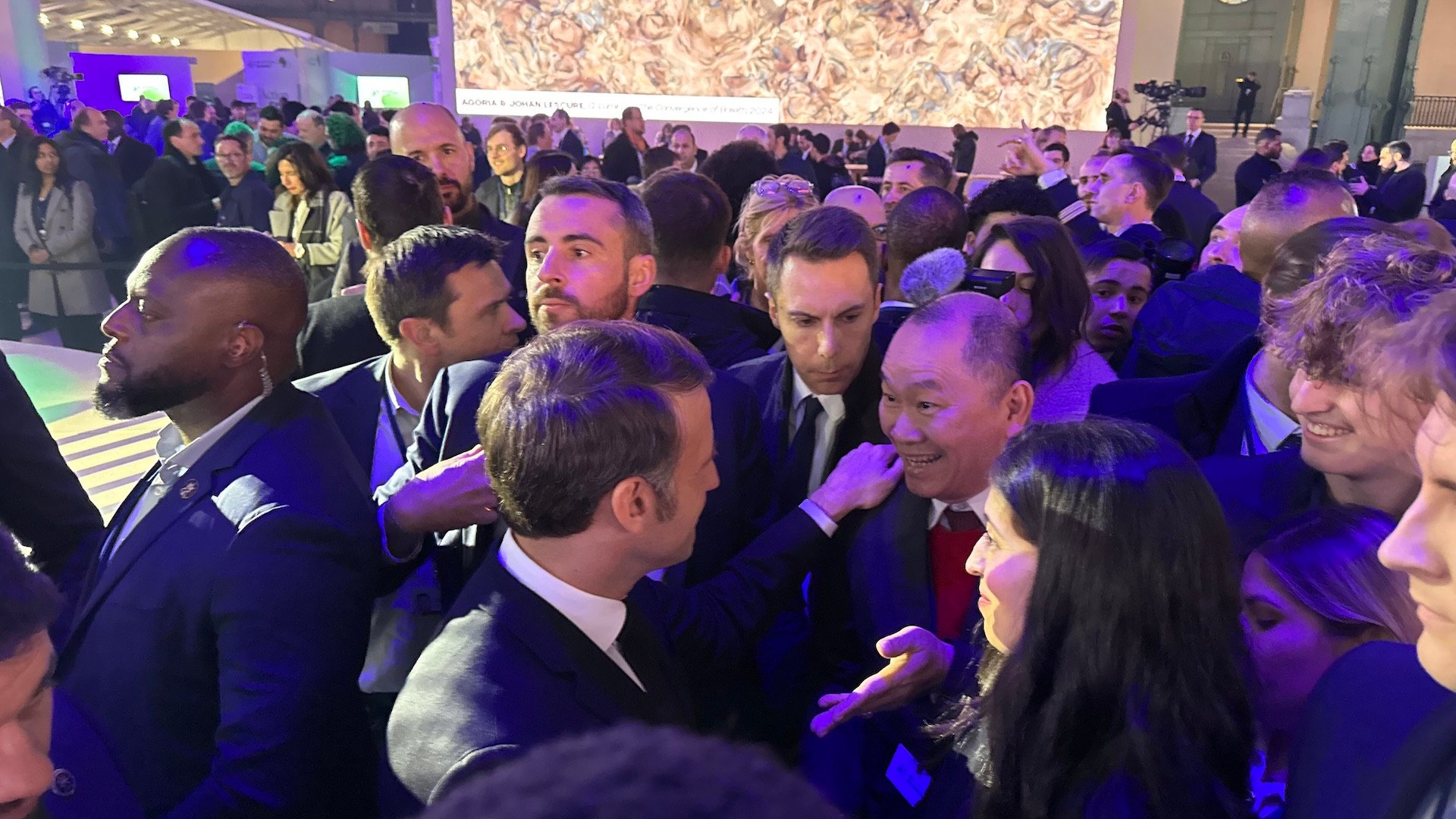
Mr. Nguyen Anh Tuan and French President Emmanuel Macron at the AI Action Summit in Paris, February 2025
Experts predict that in the near future, nearly 90% of online content could be AI-generated. What governance mechanisms do you think can realistically ensure truth and authenticity in that future? How can human creativity remain central and not be overshadowed?
In a world where AI-generated content becomes the dominant form of information, the key challenge is not that AI exists, but that we manage its role in shaping narratives, values, and beliefs.
AI is a tool, not an author
The core of my belief is simple: every AI-generated content must originate from a human idea—a human intention. AI is a powerful assistant: it accelerates expression, expands reach, amplifies imagination. But it must never overwhelm the core creative impulse that is uniquely human.
Governance roles of BGF and AIWS
To maintain that balance, BGF and AIWS are developing governance frameworks and standards to:
First, source and intent authentication: All AI content must be traceable to its human author, with metadata indicating whether it was human-generated, AI-assisted, or AI-generated.
Second, introducing AI content ethics: Under the AIWS-DASI framework, we can certify platforms and creators for ethical compliance — ensuring truth, respect, and transparency permeate every layer of digital content.
Third, celebrating human-centered creativity: AIWS Film Park and AIWS Music for Humanity demonstrate how AI amplifies human stories without losing their soul.
Human-AI Partnership for Truth
In this ecosystem, AI does not lead - AI assists. Governance mechanisms will ensure AI: Operates transparently, with auditable logs of how content is created; Respects intellectual and emotional authorship; Proactively avoids the spread of mistruths by embedding verification protocols; Empowers creators from diverse cultures and spiritual traditions.
Preserving the human spirit in the age of AI
Our mission is to build a digital society where AI expands human expression, not narrows it. By ensuring ethical standards, authenticating content, and preserving the dignity of human creativity, we can ensure that an AI-driven future belongs to people—with their stories, dreams, and truths at the center.
How can developing countries meaningfully participate in the global discussion on AI ethics and digital governance?
Developing countries have a crucial role to play in shaping the ethical future of AI and digital governance. They are not just passive recipients of technologies created elsewhere; they must co-create global standards and values in the AI era. Their perspectives, challenges, and cultural richness offer irreplaceable insights.
Participation is essential because:
Inclusive standards protect their interests: If they do not participate, global standards may be written that do not reflect their realities—unintentionally widening inequalities, deepening the digital divide, or exposing exploitative systems. Participation helps protect sovereignty, culture, and economic futures.
AI as a “leapfrogging” tool: With the right ethical framework, AI can help these countries make breakthroughs in healthcare, education, finance, and governance. Participating helps them put up protective barriers and maximize benefits.
Cultural and Spiritual Contributions to Ethics: Many countries have deep spiritual and cultural traditions that are essential to the humanistic AI vision. Philosophies of harmony, compassion, and community can enrich the global framework.
The actual way to participate is:
Join global alliances and initiatives: Organizations like BGF and initiatives like AIWS-DASI welcome collaboration. Partners will have access to cutting-edge research, policy frameworks, and ethical standards that can be localized.
Contribute your voice and case studies: Share local AI innovations, social issues, and ethical cases to bring the global framework to life. Lead working groups, present at international forums, and participate in multi-stakeholder dialogue as equal partners.
Building domestic capacity with international support: Through AIWS and networks, countries can train AI ethicists, policy leaders, and engineers, with curricula anchored in universal values of dignity and justice.
Establish ethical pilot models: Pioneer ethical pilots like medical AI, rural AI, or digital identity — and get AIWS-DASI certification. In doing so, they become leaders and models for the international community.
The benefits of joining are:
Global influence and prestige: Shaping the rules of the game, not just following them.
Access to resources and knowledge: Unlock world-class funding, technical support, and networks.
Cultural empowerment: Infuse your philosophy, religion, and tradition into global digital governance, ensuring AI is value-rich, not valueless.
Economic development with integrity: Ethical AI framework attracts responsible investment, fosters trustworthy innovation ecosystem.
Conclusion: Engaging in AI ethics and digital governance is not just a right, but a vital need. By taking the initiative now, developing countries can shape the future of AI, ensuring it serves the interests of all humanity and creating a future that reflects their values, voices and visions.
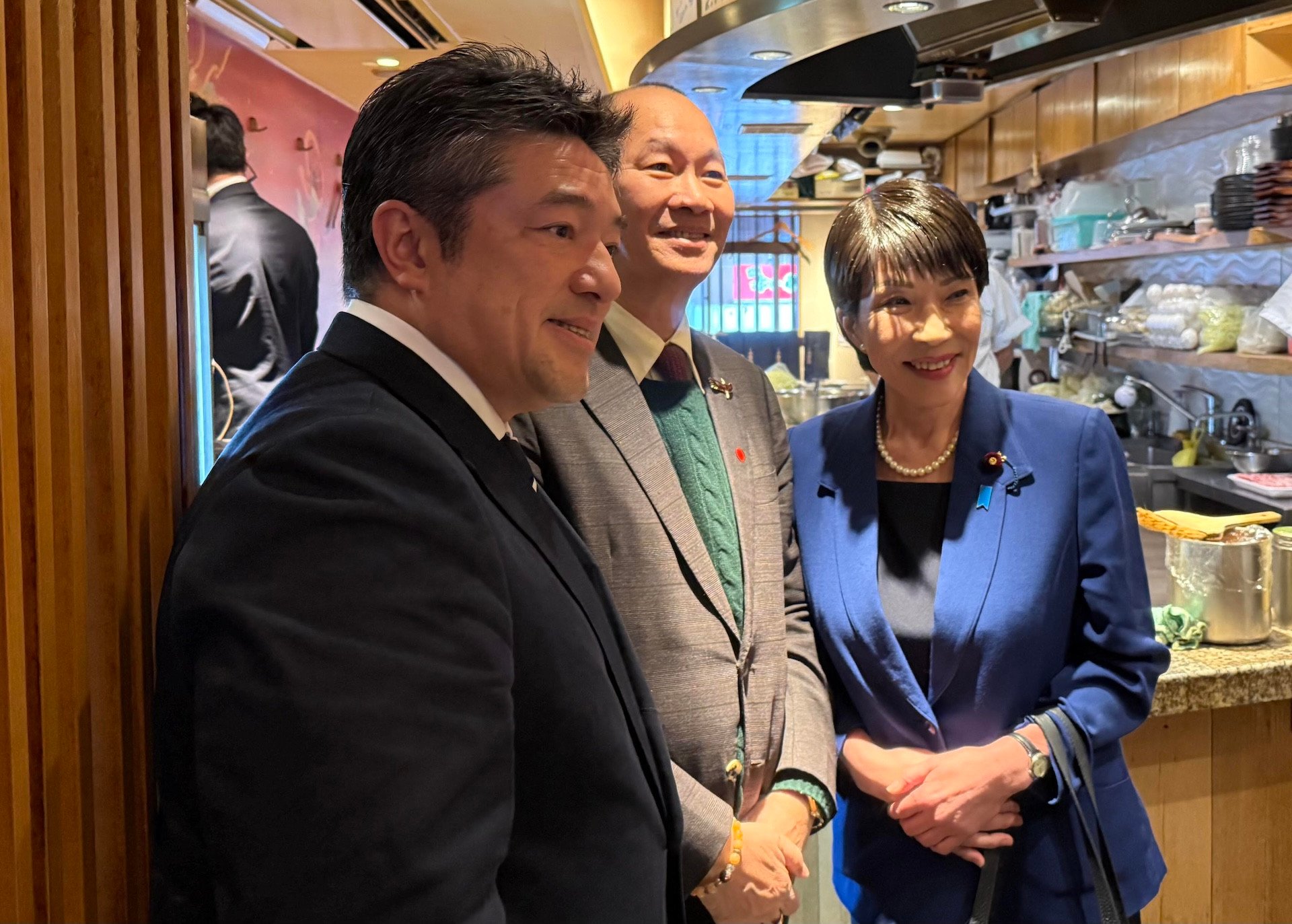
Mr. Nguyen Anh Tuan and Japanese Prime Minister Takaichi Sanae
Human-centered innovation
What does “human-centered innovation” mean to you in practice — and how can businesses and governments adopt this mindset?
To me, human-centered innovation means that every technological development must begin and end with human well-being, dignity, and empowerment.
It's not just about user experience or satisfaction — it's about aligning innovation with human values, ensuring technology becomes a force for kindness, fairness, and empowerment.
In practice, that means:
Start with human needs, not technological capabilities. The questions are: What problems are we solving for humanity? What opportunities are there for human development? Technology is a tool to amplify potential, not a destination.
Respect human empowerment: People are not data or passive users — they are deciders, co-creators, and partners. Transparency, control, and choice are theirs.
Integrate ethics from day one: Design with equity and justice in mind from the start, not “patch-on” later. Every innovation should be tested for its social and ethical consequences, especially for vulnerable groups.
Prioritize inclusiveness: Solutions must embrace diverse cultures, languages, and needs, especially those of marginalized communities. The AI revolution must leave no one behind.
Suggestions for businesses: Establish a Human Values team in R&D/product design; Adopt AIWS-DASI certification to ensure transparency, trust, and dignity; Co-design with users, especially the most impacted groups; Redefine KPIs beyond profit — measuring trust, well-being, accessibility, and social value.
Suggestions for the government: Integrate ethics into policies/regulations according to AIWS and Boston Charter for AI Ethics standards; Invest in humanistic education, combining AI – humanities – ethics – public service; Fund Civic Tech & social innovation: using AI to solve health, climate, and education problems; Protect human rights in the digital space: data, identity, and digital freedom must be protected by law and design.
In short, human-centered innovation is about restoring the “soul” to technology. It calls on us to develop AI not just for efficiency or growth, but for compassion, truth, meaning, and shared progress. With the right mindset and mechanisms, we can ensure that innovation enhances—not replaces—people.
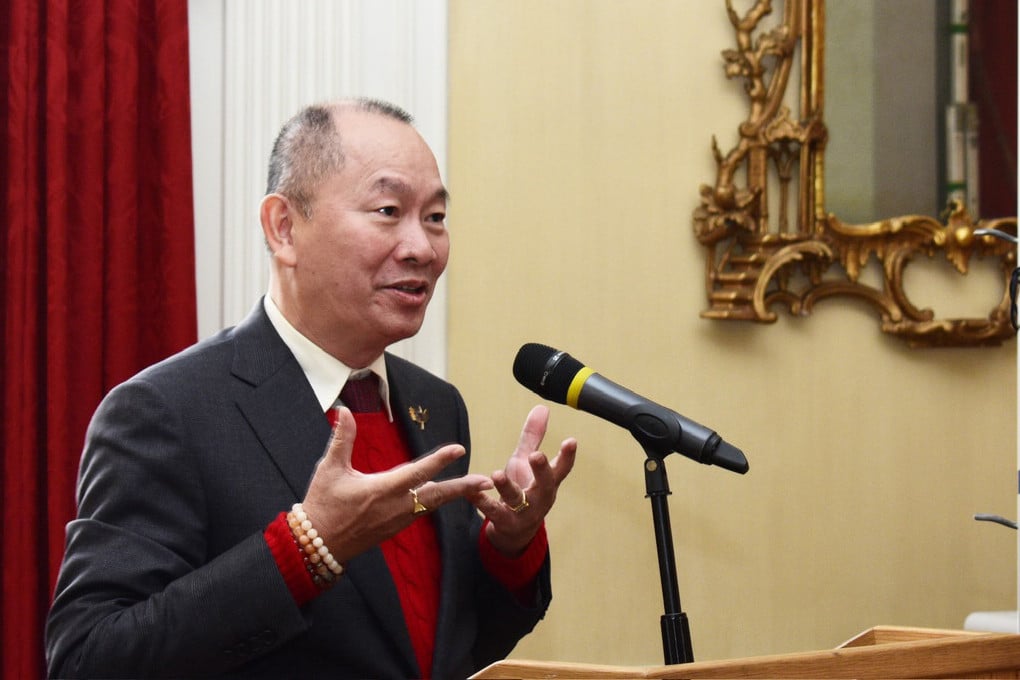
Mr. Nguyen Anh Tuan announced the AIWS Digital Asset Standards Initiative (AIWS DASI) at Loeb House, Harvard University, November 4, 2025
Looking to the future
How do you envision the AI World Society evolving over the next decade?
In the next 10 years, I envision AIWS maturing into a global citizen-tech ecosystem where governments, businesses, universities, and individuals collaborate ethically in the AI era to build a peaceful, inclusive, and creative civilization.
AI Integrated Governance Model (AIWS Government 24/7)
AIWS helps governments move from traditional administration to more intelligent, continuous, transparent, responsive, and efficient governance — with trusted AI agents supporting public leadership and institutions, while upholding democratic values.
Digital economy and ethical financial system
AIWS supports the creation of a digital economy based on trust and fairness. Through AIWS-DASI, AIWS leads the ethical certification of digital assets, protects against cybercrime, and empowers people in both developed and developing countries.
Culture, spirit and humanity are the core
AIWS promotes the fusion of culture, technology, and spirit. AIWS Film Park and AIWS Music for Humanity foster global artistic collaboration, honoring human creativity in collaboration with AI, while preserving and amplifying sacred values and heritage across borders.
Global Democratic Forces Alliance
AIWS continues to build alliances among democracies - the US, EU, Japan, India, Southeast Asia... to promote responsible AI, counteract authoritarian digital models and uphold the four pillars: Democracy, Ethics, Innovation and Humanity.
Enlightened Citizenship in the Age of AI
AIWS expands access to educational initiatives that empower students and future leaders with the ethical, cultural, and civic capacity to shape the future of AI. Its knowledge base, digital library, and transnational research center will make AI learning universal, practical, and valuable.
In short, by 2035, AIWS will be more than just a vision – it will be a society of living values. A framework of trust to ensure AI remains a friend of humanity, not a force for disruption. A society where innovation is guided by compassion, where digital progress is anchored in ethics, and the soul of civilization is never lost to the speed of machines.
As someone shaping the global dialogue on ethical AI, what keeps you optimistic and purposeful amid the rapidly changing and complex AI landscape?
What keeps me optimistic is the belief that human dignity, humanity, and creativity will always prevail over complexity. Because I believe that technology, when guided by ethics and wisdom, can be a profoundly positive force.
Even in times of uncertainty, I find strength and clarity in a few things:
The power of global collaboration. Working with governors, spiritual leaders, professors and young innovators from Harvard to Hanoi, from Paris to Tokyo – I see a shared desire to build a better future. These collaborations remind me that, no matter how far AI goes, the human desire for peace, justice and meaning will always be at the center.
Ethical anchors like AIWS and BGF. AIWS gives me a moral compass: not just about machines, but about society, values, and shared destiny. Initiatives like AIWS Government 24/7, AIWS-DASI, and AIWS Music for Humanity demonstrate that it is possible to bring ethics and beauty to digital innovation. That gives me hope.
Stories of perseverance and vision. When I think of leaders like the late Japanese Prime Minister Abe Shinzo, French Prime Minister Emmanuel Macron, and spiritual leader Gurudev Sri Sri Ravi Shankar, I know that ethical leadership is real and powerful. Honoring their legacy reminds me why this work matters.
The energy of youth and future generations. Young people in Vietnam, the United States, Japan, and elsewhere inspire every day. They embrace AI not just as a tool, but as a responsibility. They are curious, ethical, and courageous—and they will shape an enlightened digital civilization.
Ultimately, I am optimistic because I see AI as a mirror. It reflects who we are. If we act with ethics, courage, and compassion, AI will reflect that back. And together, we can build a civilization that honors both intelligence and humanity.
If you were to advise young AI leaders today, what core values should guide them as they innovate?
My advice is simple yet profound: lead with people first. Technology may define the tools of the age; values define the destiny of civilization.
Compassion and responsibility
Every algorithm, model, and system you build touches real people’s lives. Lead with compassion—design technology to serve people, not control them. Responsibility must guide all innovation, ensuring progress does not come at the expense of dignity or freedom.
Truth and Transparency
In an age where information can be distorted by speed and automation, truth becomes sacred. AI leaders must commit to transparency, honesty, and integrity, both in how they build and how they use AI. Trust is the foundation of all sustainable innovation.
Creativity and courage
Don’t just copy what’s already there—imagine what’s possible. Great AI leadership requires creative thinking and pioneering courage. The biggest breakthroughs come from those who blend vision with moral imagination.
Cooperation and humility
No one can build the future alone. Work with scientists, philosophers, artists, and spiritual leaders. Humility helps you listen, learn, and grow. The best AI leaders are not those who dominate technology, but those who blend human intelligence with machine intelligence.
Respect for cultural and spiritual diversity
AI must reflect the beauty of human diversity. Leaders must ensure that AI respects different cultures, beliefs, and values, thereby strengthening global solidarity rather than dividing it. Interfaith understanding and ethical depth are essential for sustainable innovation.
Ultimately, young AI leaders need to see themselves not just as innovators, but as custodians of the future – building an AI world that is ethical, compassionate, and deeply human. Because the true measure of leadership in the AI Age is not how powerful technology is, but how wisely and kindly that technology serves humanity.
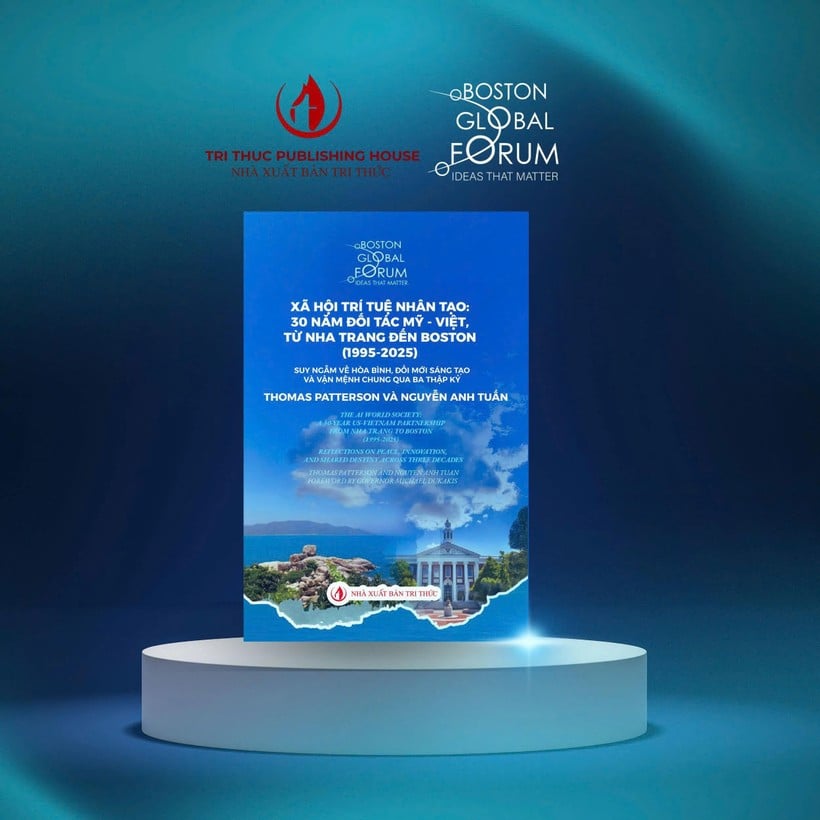
Mr. Nguyen Anh Tuan has just released the book "Artificial Intelligence Society: 30 Years of US-Vietnam Partnership, from Nha Trang to Boston (1995 - 2025). Reflections on Peace, Innovation, Creativity and a Common Destiny Through Three Decades"
Journey Highlights
You have had a remarkable journey - from founding VietNamNet to now leading the Boston Global Forum. How has that journey shaped your vision of technology and ethical governance?
My journey has always been guided by a commitment to using technology as a force for good.
Looking back, when I founded and became Editor-in-Chief of VietNamNet, I envisioned the media as a platform to support society, promote reconciliation and foster compassion. One of my earliest initiatives was World Reconciliation Day, promoting respect, tolerance and love.
As I watched AI rapidly emerge, I saw both great promise and deep risks. I soon realized the urgent need for ethical governance for AI—to ensure that AI serves humans, not the other way around.
Over time, I envision a future where AI does not replace humans, but becomes a sincere friend and assistant, amplifying our capabilities and supporting our dignity.
That vision crystallized in the establishment of the AI World Society (AIWS) in 2017, a comprehensive framework for building a new society in the AI era – one that combines ethics, human values, and technological innovation.
Today, through the Boston Global Forum, we continue that mission, collaborating with global leaders and thinkers to shape a just, peaceful, and enlightened future driven by AI.
Mr. Nguyen Anh Tuan is Co-founder and CEO of Boston Global Forum, creator of the AI World Society (AIWS) initiative. Formerly Founder and Editor-in-Chief of VietNamNet, he is a pioneer in digital communications and governance. His work connects global leaders, thinkers, and innovators to define the “Social Contract for the AI Age.” He leads the design of AIWS programs, including AIWS-DASI, to establish an ethical and human-centered framework for the future digital economy. |
Vietnamnet.vn
Source: https://vietnamnet.vn/cong-nghe-phai-phat-trien-song-hanh-voi-luong-tri-2464169.html


![[Photo] President Luong Cuong receives President of the Senate of the Czech Republic Milos Vystrcil](/_next/image?url=https%3A%2F%2Fvphoto.vietnam.vn%2Fthumb%2F1200x675%2Fvietnam%2Fresource%2FIMAGE%2F2025%2F11%2F20%2F1763629737266_ndo_br_1-jpg.webp&w=3840&q=75)

![[Photo] National Assembly Chairman Tran Thanh Man holds talks with South Korean National Assembly Chairman Woo Won Shik](/_next/image?url=https%3A%2F%2Fvphoto.vietnam.vn%2Fthumb%2F1200x675%2Fvietnam%2Fresource%2FIMAGE%2F2025%2F11%2F20%2F1763629724919_hq-5175-jpg.webp&w=3840&q=75)


![[Photo] Lam Dong: Panoramic view of Lien Khuong waterfall rolling like never before](/_next/image?url=https%3A%2F%2Fvphoto.vietnam.vn%2Fthumb%2F1200x675%2Fvietnam%2Fresource%2FIMAGE%2F2025%2F11%2F20%2F1763633331783_lk7-jpg.webp&w=3840&q=75)
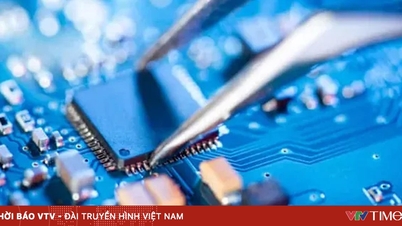

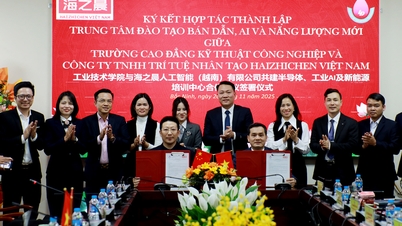

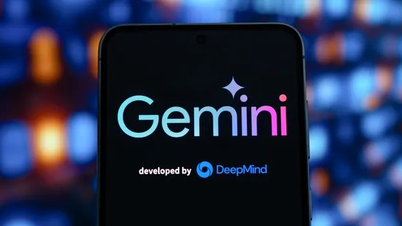
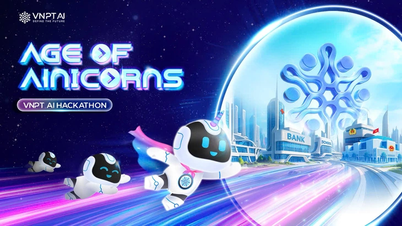

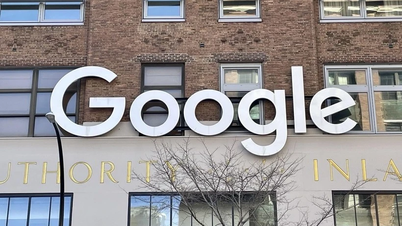



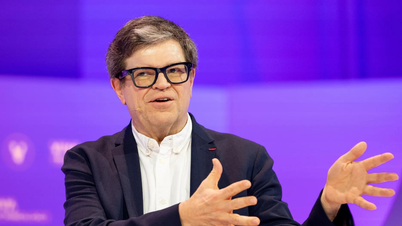
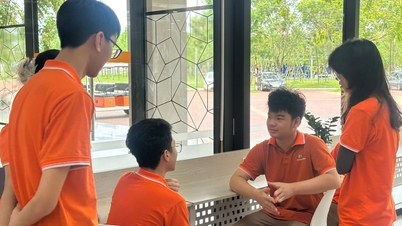


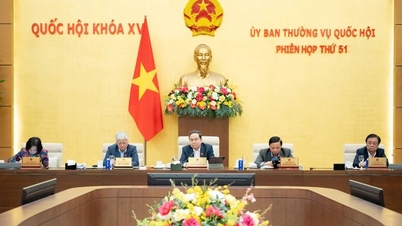

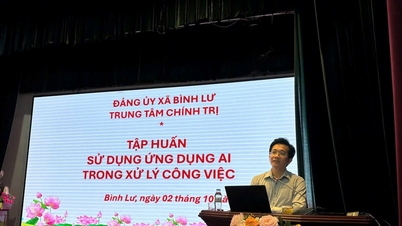




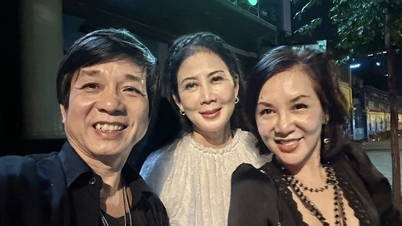
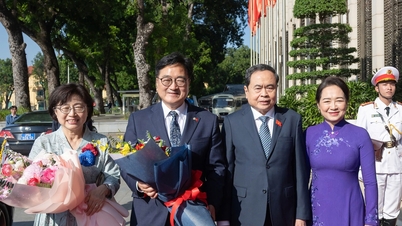
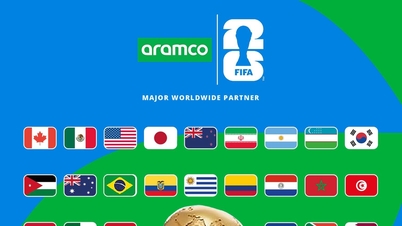


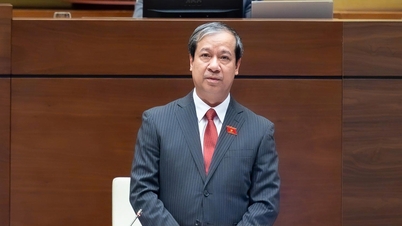



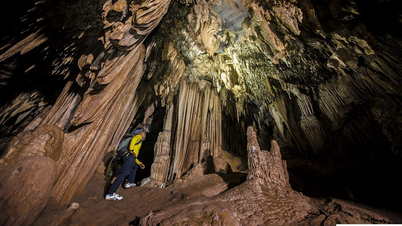





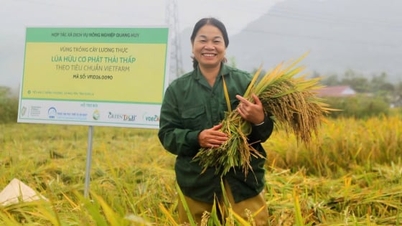

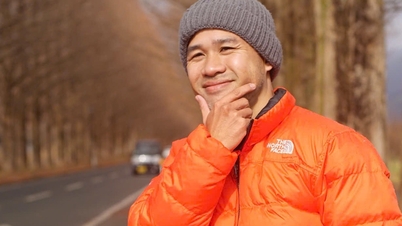
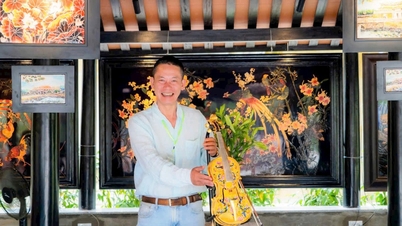



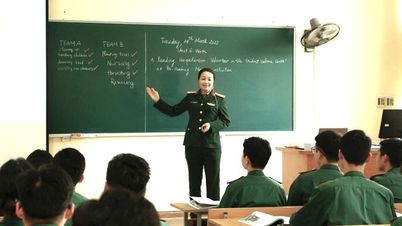

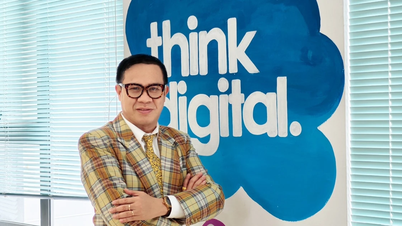
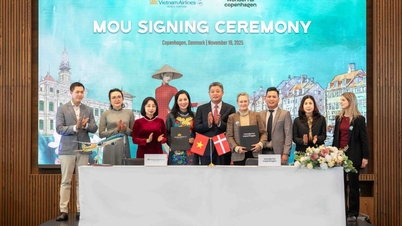

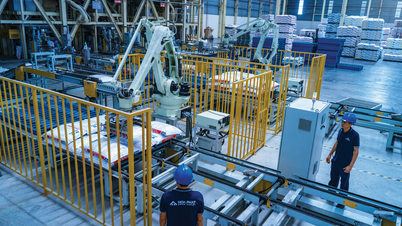

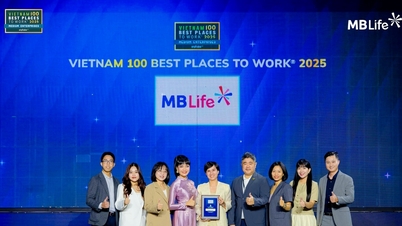

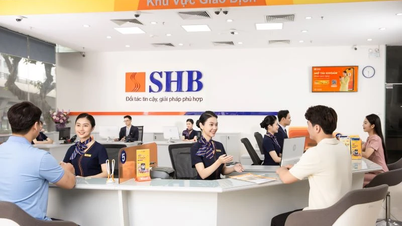









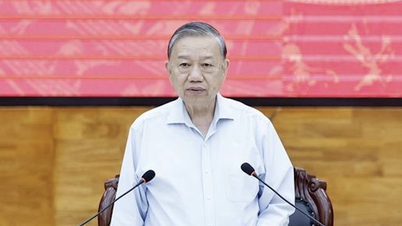



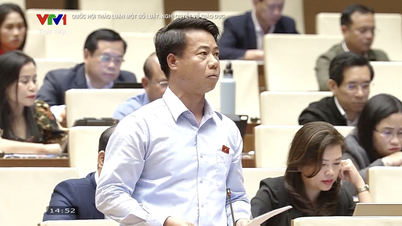


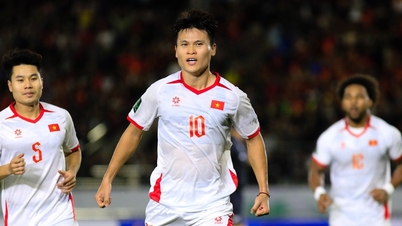



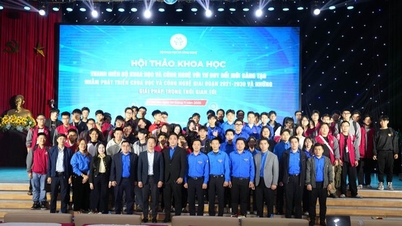
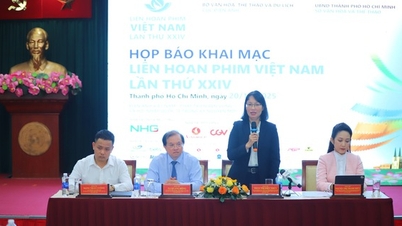

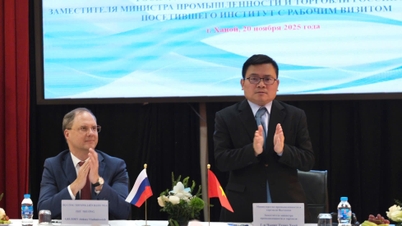

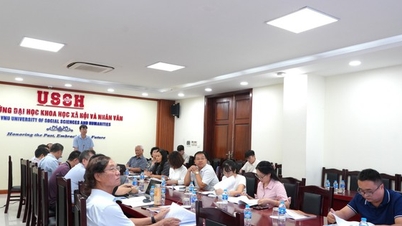
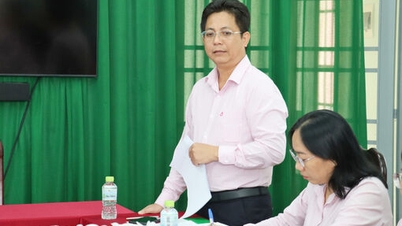

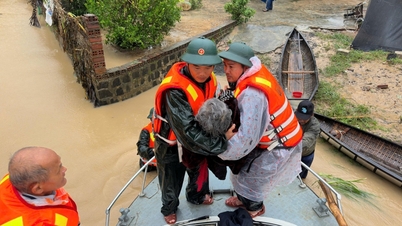

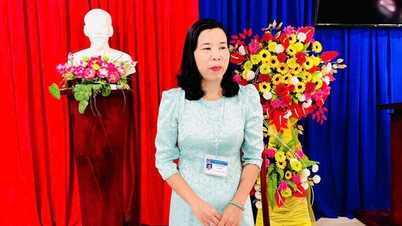
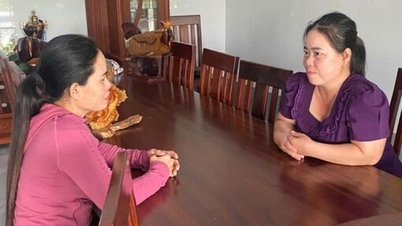
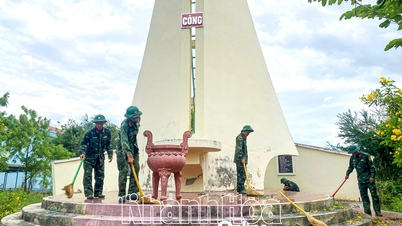

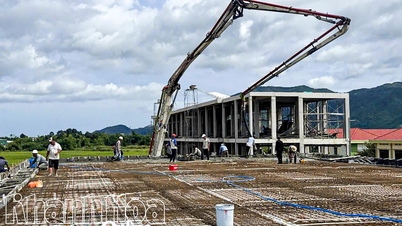


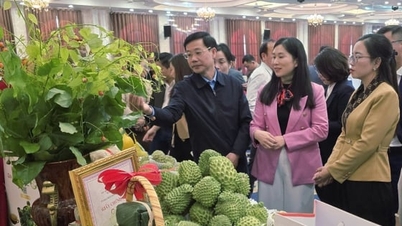









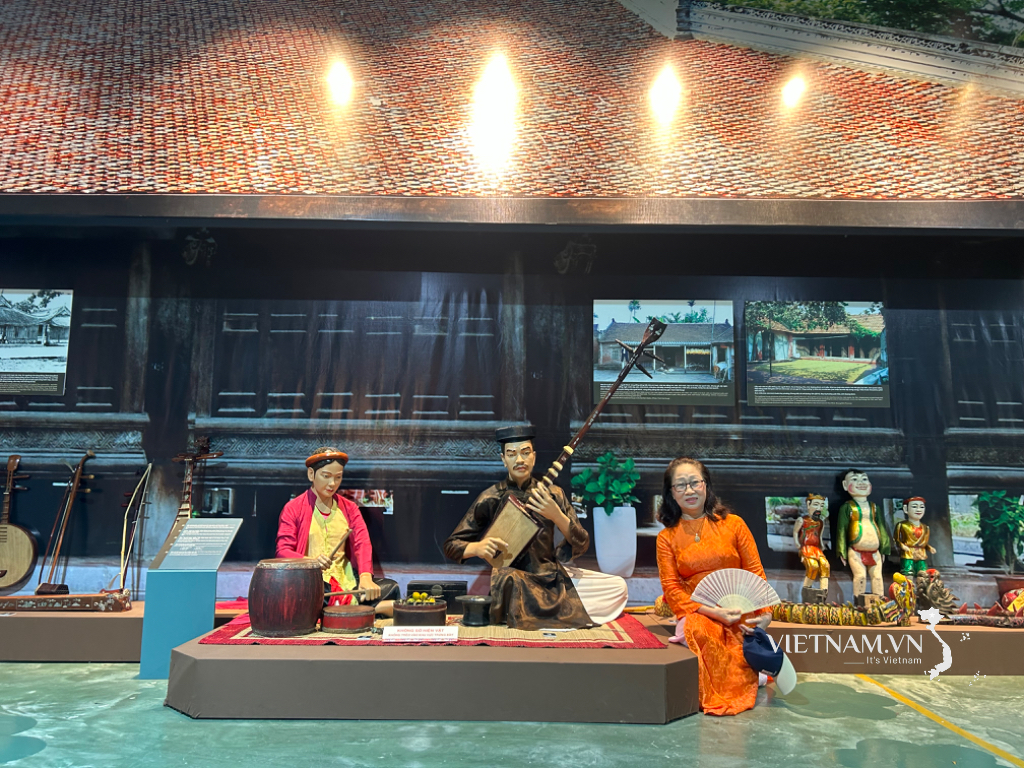

Comment (0)